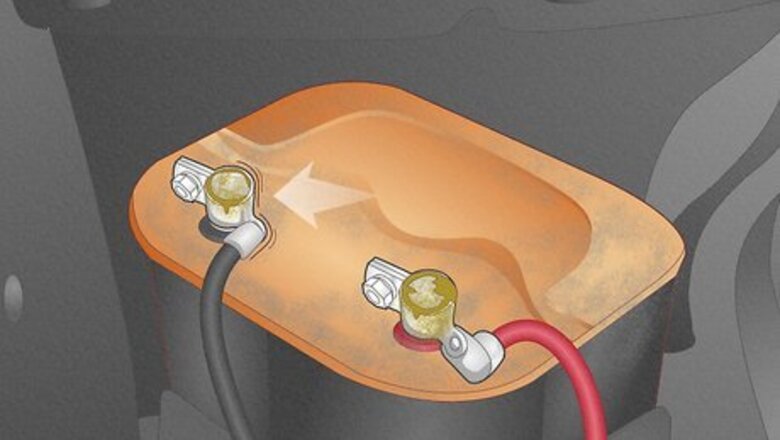
views
- If your battery light is on but your car still runs, you may have loose or corroded battery cables, or there are issues with the alternator or voltage regulator.
- Batteries only last 3-5 years, so the battery light may come on if you’re nearing the end of your battery’s natural life.
- If you know the battery is functioning correctly, your alternator is almost positively the issue.
Reasons the Battery Light Turns On
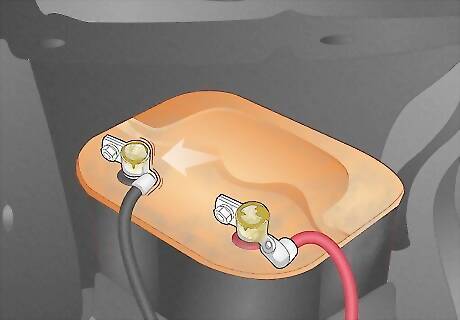
Loose or corroded battery cables The cables and connections on the battery go through a lot of wear and tear, and the battery light will illuminate if the cables become loose. Alternatively, if the battery acid has leaked on the terminals, the corrosion can interfere with the flow of current and trigger the light. Batteries will often leak when they’re nearing the end of their life.

Dying battery Car batteries typically have a lifespan of 3-5 years, so if it has been a while since you last replaced the battery, it’s probably just at the end of its natural life. If you haven’t had your car that long, look at the sticker on top of the battery. The manufacture date is typically listed on it.
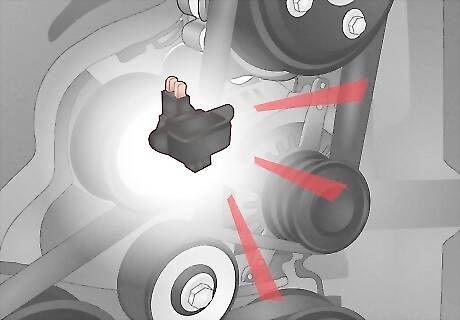
Bad voltage regulator The voltage regulator monitors and controls the electrical output of the alternator. If that regulator is damaged, your alternator will end up feeding too much (or too little) energy back to the battery. The voltage regulator won’t normally fail on its own unless your vehicle is very old or the alternator is already damaged. A bad voltage regulator will also cause strange electrical symptoms in the cabin. You’ll likely notice your dash lights getting really bright or dark at random times.
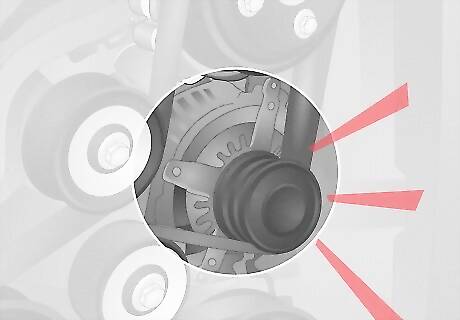
Bad alternator After a bad battery, a faulty alternator is the next most likely explanation for the battery light on your dashboard. The alternator keeps the battery charged while you drive, so if the battery is struggling to stay stable while you’re on the road, the alternator is probably to blame. A bad alternator will cause more problems the longer you drive. Eventually, your vehicle will stall out and die. You may also smell burning rubber if your alternator is bad. This is the result of the belt struggling to turn in the alternator—the friction causes the rubber to lightly burn.
Troubleshooting & Solutions

Inspect the battery for corrosion or loose cables. Corrosion buildup is a major sign that the battery likely needs to be replaced soon. However, loose cables are solvable. With a cold engine, jiggle the cables connected to the terminals to confirm they’re tight. If either of the cables are loose, tighten the nut on the clamp with a wrench to re-secure them. If you tighten the cables and the battery light never comes back on, consider the problem solved! Battery corrosion looks kind of like chalky buildup. You can clean the corrosion off using a wire brush, baking soda, and warm water, but that’s only a temporary solution if the battery is bad.
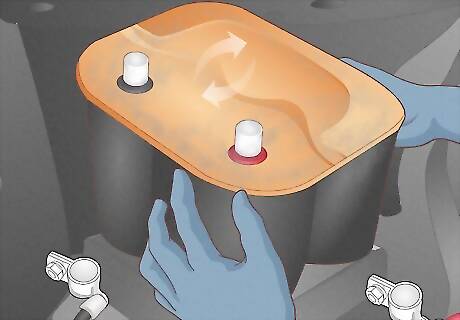
Replace the battery if it’s dying. If it has been at least 3-5 years since you replaced it or it’s leaking, it’s probably just time for a new battery. Disconnect the old battery by removing the negative cable first, then remove any fasteners holding the battery in the bracket. Replace the battery and secure it using the same screws and fasteners from your old battery. Make sure that your replacement battery is the same size and type as your old battery. The dimensions and type of your old battery are printed on the battery label.

Test your battery at the mechanic if you’re unsure. Jason Shackleford, an auto repair expert with over 24 years of experience, says that checking the battery at home can be tough: “Home diagnosis is rather difficult and not very accurate. Most auto parts stores and some repair shops will usually test your battery at no charge.” If the battery is old and/or you have corrosion, you can skip testing. You only need to do this if you aren’t sure whether the battery or alternator is bad.
What to Do if the Light Still Won’t Turn Off
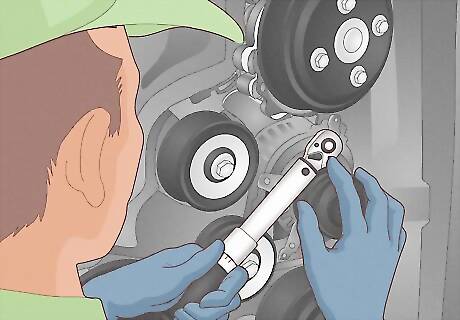
Get your alternator repaired by a professional. If you’ve ruled out battery issues, you can rest assured that the problem is almost certainly the alternator (or the alternator’s voltage regulator). Unfortunately, this is never a DIY repair. Take your vehicle to the mechanic to have the alternator inspected and repaired as needed. Expect to spend around $700 having your alternator repaired or replaced.
What to Do When the Battery Light Illuminates
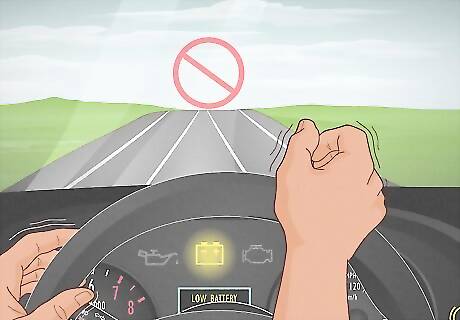
Don’t panic. If the battery light pops on while you’re driving, don’t freak out or lose your cool. You likely have time to assess the situation and jerking your wheel in a panic will only put you at risk. Take a deep breath.

Turn off any unnecessary electrical systems. Unplug any phone chargers, turn the headlights off if it’s daytime, and shut your radio off. Lower your dash lights if you’re able to as well, but only if you can still see what all of the indicators say. The more breathing room you can make for the battery, the less likely the battery will be to die.

Continue to your destination if it’s nearby and the car runs. The battery light illuminating on your dashboard does not automatically mean you’re going to lose power. If your vehicle appears to be running okay, you aren’t on a super congested road, and you’re close to your destination, go ahead and continue on your way. Go slow, keep your emergency lights on, and stay in the lane closest to the shoulder in case you need to pull over.
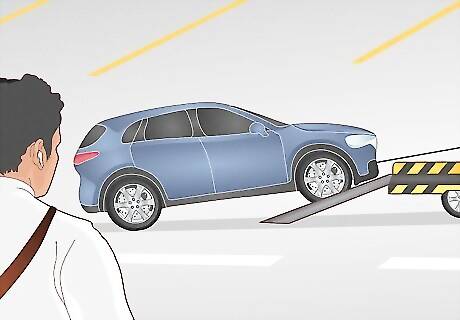
Pull over and call a tow truck if you’re far or lose power. If you’ve still got a super far way to go or you can feel the power dissipating from your vehicle (loss of acceleration, lights dimming, etc.), pull over somewhere safe. It’s not worth risking your safety to get a few extra blocks, so call a tow truck and play it safe.











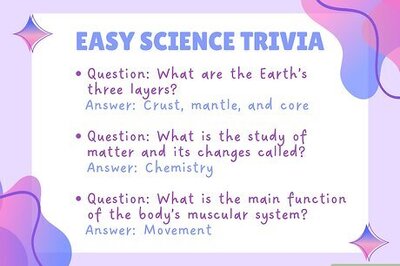








Comments
0 comment